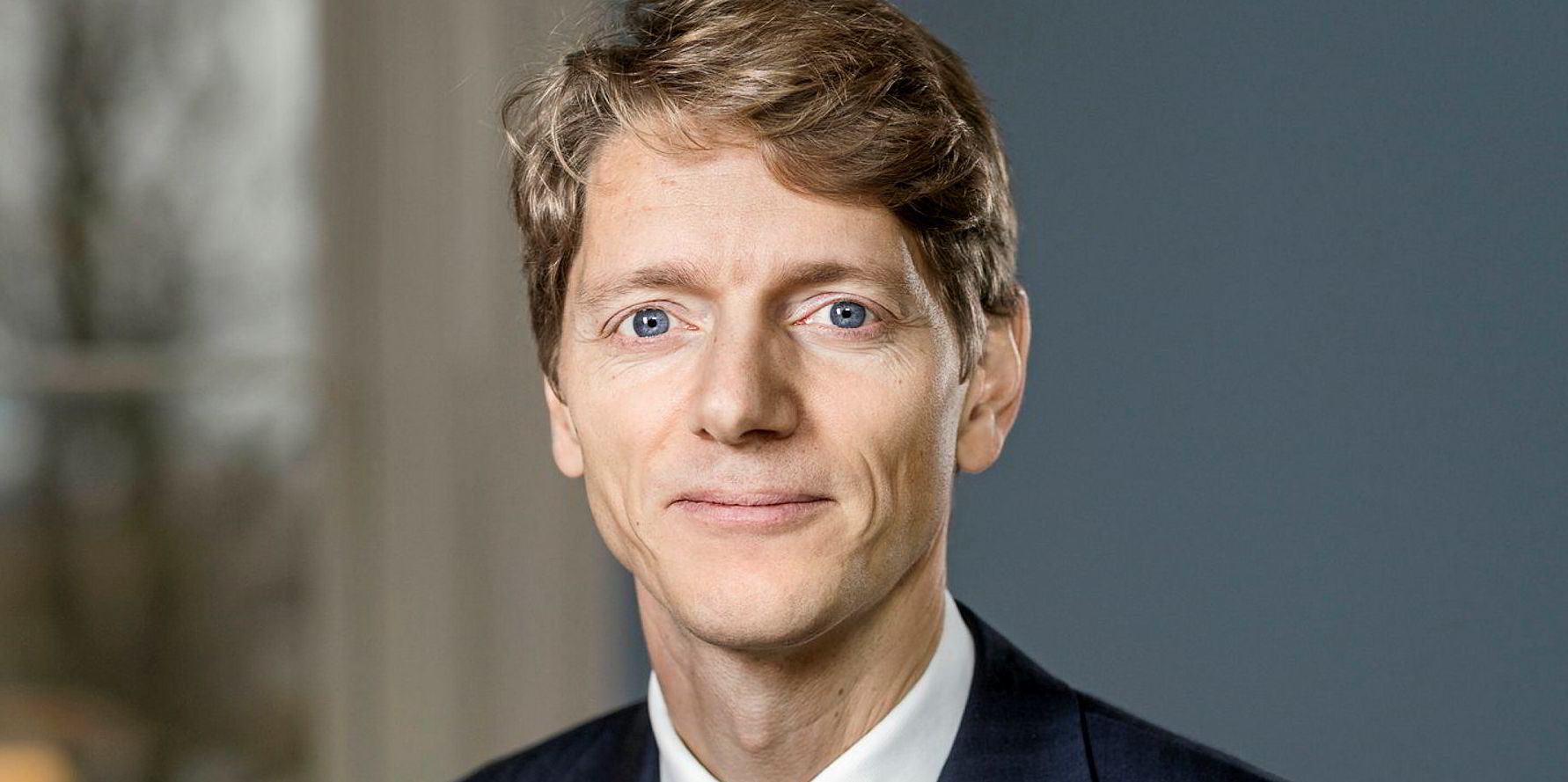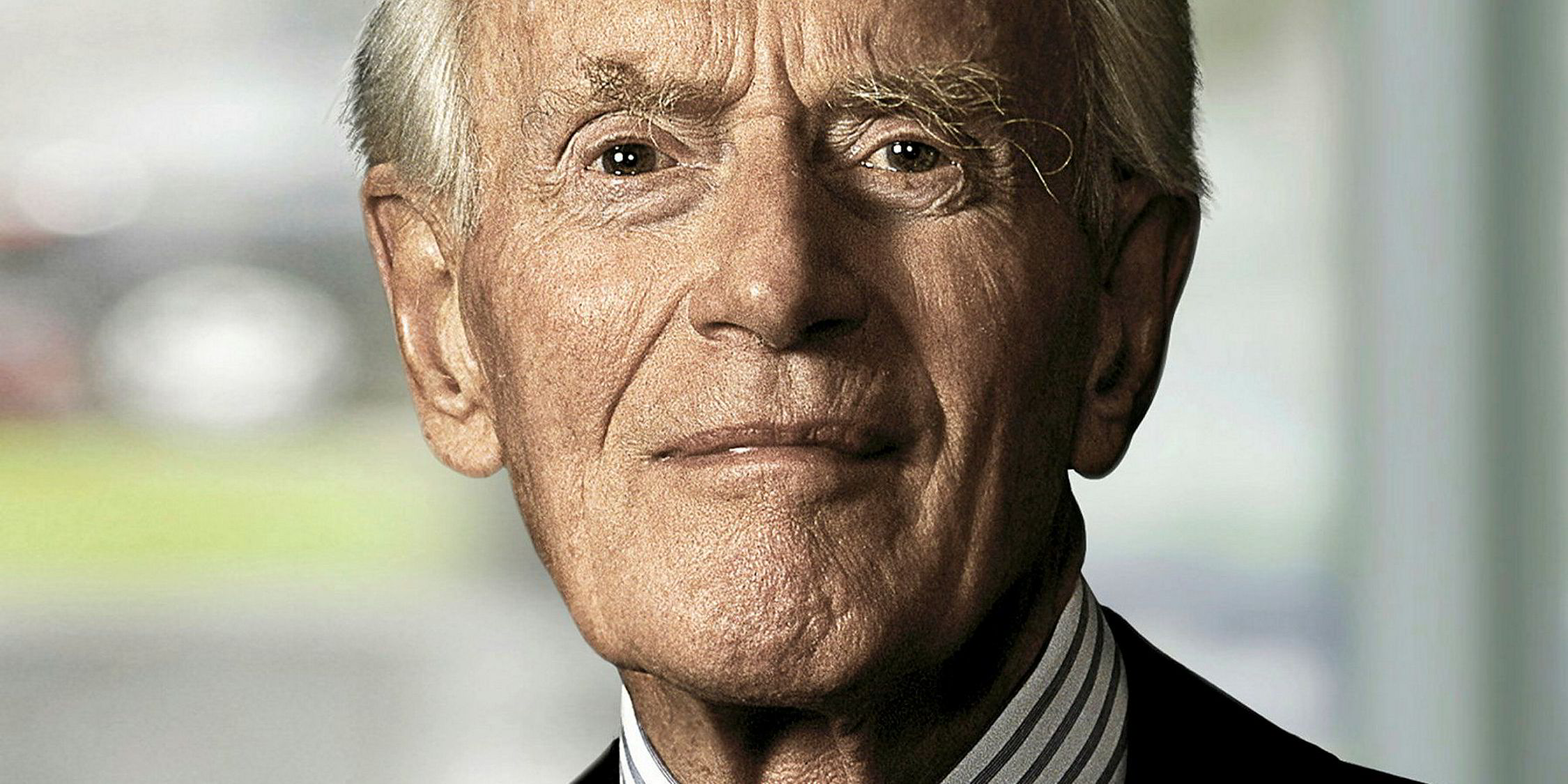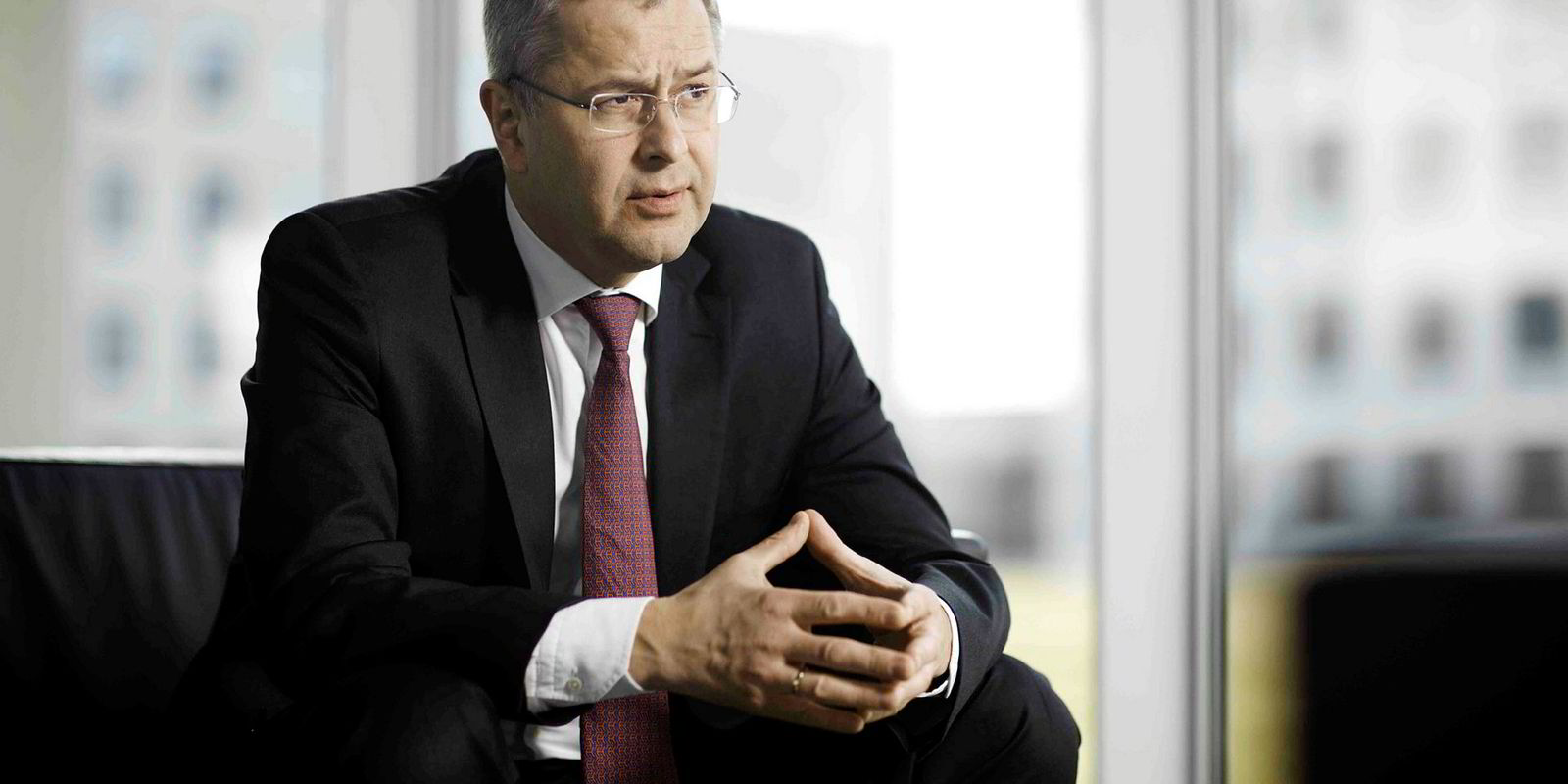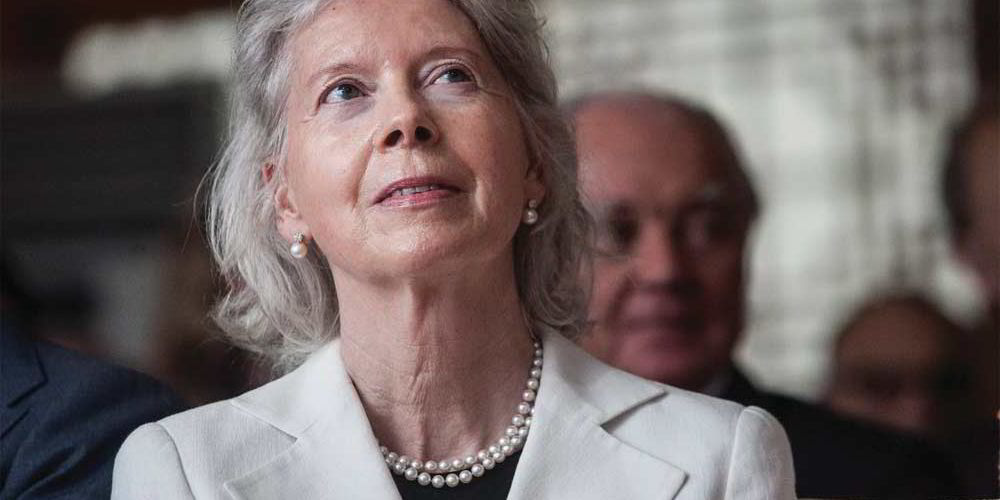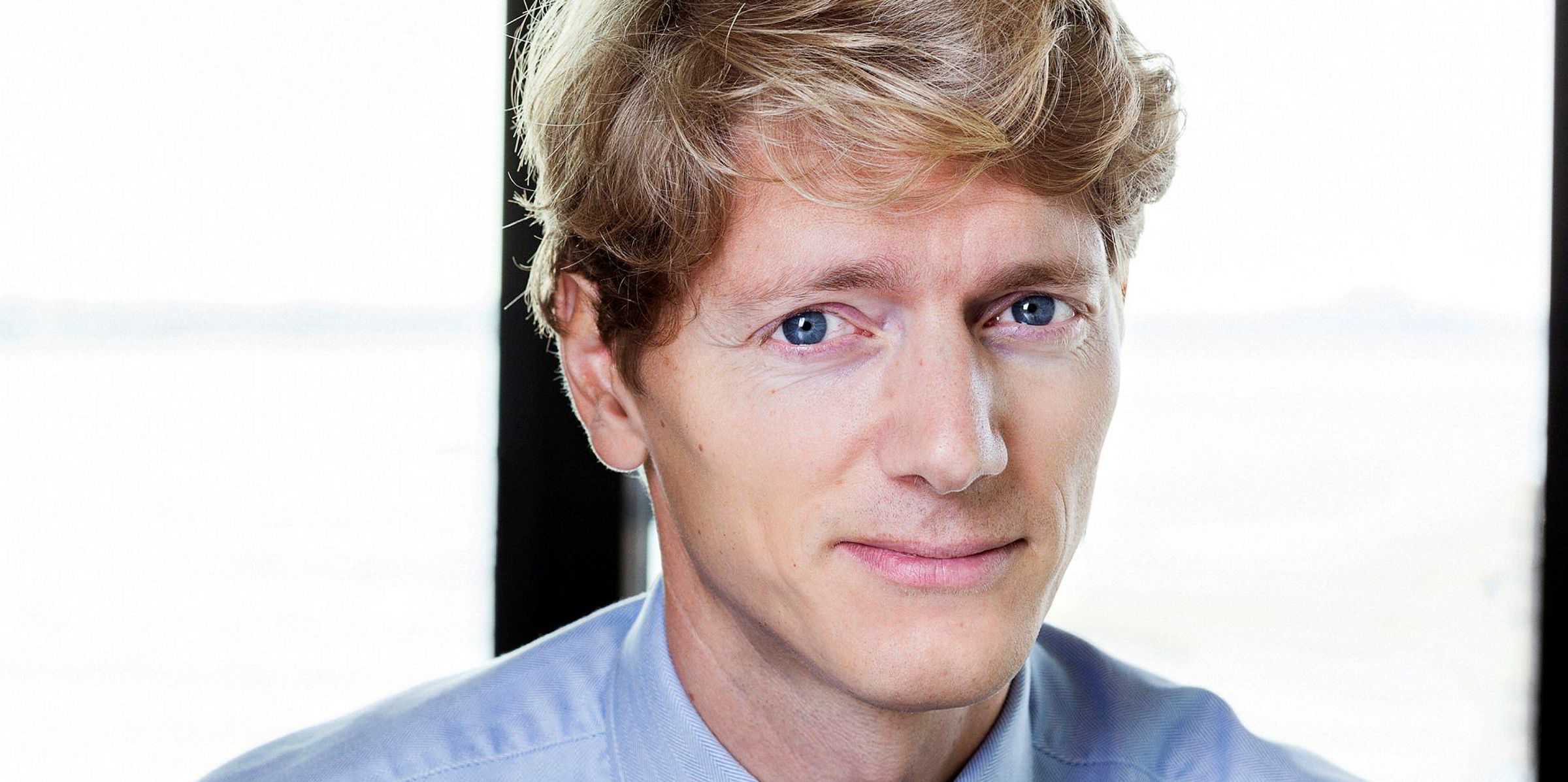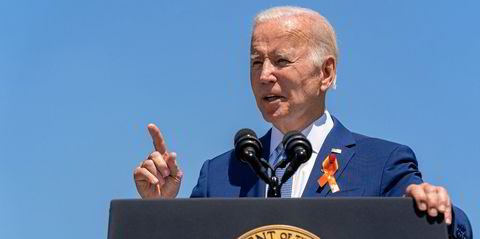As Robert Maersk Uggla rose to the fore as permanent successor to Arnold Maersk Mc-Kinney Moller, it was stressed how he had inherited his grandfather’s values of taking a long-term view of business.
It did not stop — maybe it helped — him being instrumental in a massive shake-up of AP Moller-Maersk under a new group strategy, and the total restructuring of the family firm that owns a majority of the shares, albeit processes set in motion by his mother when she took charge after the patriarch’s death in 2012.
Maersk Uggla joined the board in 2014 and became chief executive of the revamped private firm that owns the group, AP Moller Holding, in 2016 after a stint as head of group towage firm Svitzer and senior roles in the liner and tanker businesses.
The 42-year-old continues to espouse the family belief that AP Moller Holding should be an engaged owner that adds value to investments which are rooted in long-term trends and deliver a positive impact on society.
Those who know him say he sees himself as the custodian of the 100-year-plus shipping giant. But he has also brought his own passions and character to the job, pushing an environmental agenda and setting up an investment fund to benefit Africa.
In the past four years he has overseen a strategy to realign the box carrier core, Maersk, as the leading “global integrator of container logistics with a portfolio of end-to-end products and services” while divesting parts of the listed conglomerate.
Sales of the oil-related businesses have been made either to the holding company, like Maersk Tankers, or outside (Maersk Oil to Total).
Greener investments have seen AP Moller Holding buy into KK Wind Solutions, which supplies electronic systems for wind turbines. This year it boosted its declared aim to decarbonise its shipping assets by setting up the Maersk Mc-Kinney Moller Center for Zero Carbon Shipping.
Social media
Maersk Uggla drove the social focus in 2017 when he launched a $1bn infrastructure fund to invest in projects within Africa. Maersk Uggla — reclusive, like his mother and grandfather — made a rare public speech in which he stressed the need for action: “Only 3% of world trade today takes place in Africa, but 16% of the world’s population lives on the continent.”
Like his grandfather, he lives simply and works hard, but he has also bought into using social media in ways it would have been hard to imagine his forebears doing — and attended Copenhagen Pride in 2019.
Those who have met him say he is curious, and his leadership style is more to ask questions than dictate terms. Despite his desire to stay out of the limelight, he is easygoing, open and direct.
Ultimately, Maersk’s restructuring was aimed at improving returns from its core shipping businesses, and it has paid off with improved results.
A drive to expand Maersk while consolidation still made sense ended with one last big acquisition of Hamburg Sud three years ago completing its jigsaw in north-south trades and higher-margin reefer containers. Smaller purchases to acquire logistical skills continue.
Modernisation, including digital development, was cemented by the 2M alliance with the second-biggest carrier, Mediterranean Shipping Co. Agreeing capacity discipline with the formerly aggressive rate-cutting maverick line avoided a calamitous market collapse during the coronavirus crisis.
Until prevented by competition authorities, the alliance was planned to include the third-largest line, CMA CGM. All three are under younger leadership: Maersk Uggla with liner head Soren Skou at Maersk, and sons of the fathers Diego Aponte at MSC and Rodolphe Saade at CMA CGM.
Halting the in-fighting for market share has transformed the big carriers’ profitability. “The old guard could not do it with each other, but the new generation could,” one industry insider says.
New blood is breaking the chains of underperformance for the liner industry.
